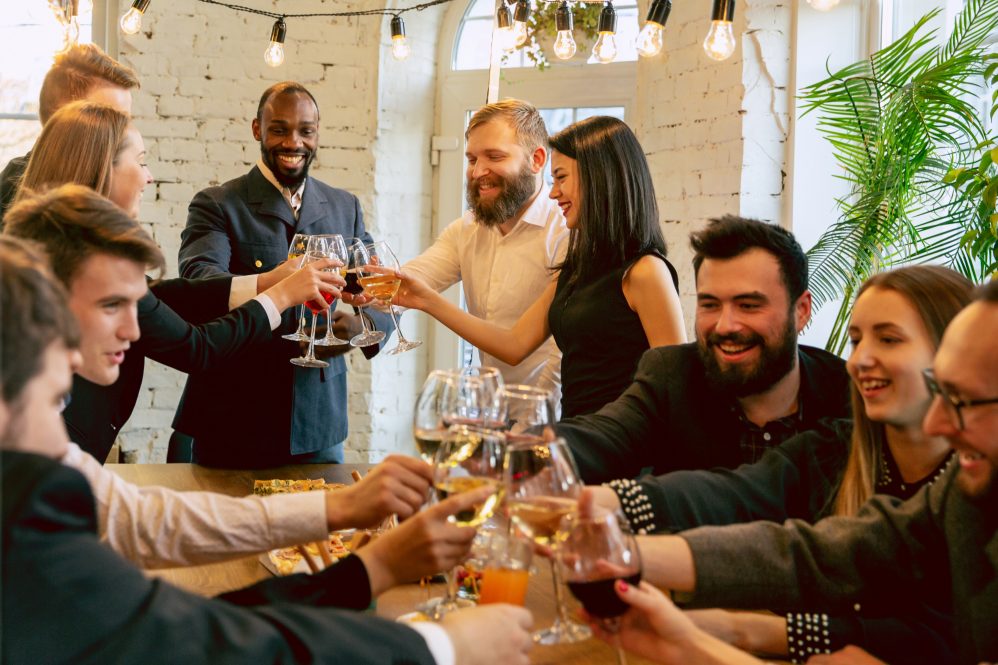Whether it’s a graduation party, a milestone birthday, or a toast to a promotion, celebrations can benefit participants’ health and wellbeing.
Those are the findings of UConn marketing professor Danielle Brick, whose research was just published in the Journal of Public Policy & Marketing.
“Celebrations are an area that have certainly been under-studied,’’ Brick says. “They are so commonplace and ingrained in our culture that we don’t think too much about them. But why are we doing this? Why do we have celebrations? What are the benefits? Sure, it is fun and enjoyable to mark a special occasion, but there are also tremendous mental health and wellbeing benefits that can come from it.’’
The researchers discovered that the most successful celebrations require a social gathering, with food or drink, and the intentionally marking of a positive life event. The celebration reinforces participants’ social support and the belief that he or she has a social network that will be there in case of future, negative life events.
“That belief is associated with health and wellbeing outcomes, including increased life-span and decreased anxiety and depression,’’ Brick says. “Buying yourself a congratulatory gift to celebrate an accomplishment just isn’t the same as celebrating with a dinner and drinks with friends.’’
Celebrations need not be lavish or expensive to garner those results, she says. “We’re in a tight economy now and people may not have money for grand celebrations, but even finding little ways to mark positive events has a big impact on wellbeing,’’ she said. “Sharing food and drink with other people and celebrating an achievement is extremely important.’’
Although not as popular as an in-person event, even a virtual party will work, as long as the three components are present. Brick and her co-authors, including professors Kelly Wight of Indiana University, and James Bettman, Tanya Chartrand, and Gavan Fitzsimons of Duke University, used behavioral experiments to survey thousands of participants over several years.
Before the COVID-19 pandemic, celebrations were something we took for granted, she says.
“During the pandemic, we were isolated and couldn’t celebrate as we used to,’’ Brick says. “It was a time of unprecedented stress and uncertainty and may have long-term implications for socializing and gathering.’’
The research has implications for marketing managers, fundraisers, and people who organize institutional and community events. People who feel supported after a celebration are more willing to volunteer their time or donate to a cause, Brick says.
“This would be a good time for non-profits to market donation campaigns, around the time many people are celebrating holidays, graduations, weddings and other big events,’’ she says.
The research also suggests that hosting celebrations can be especially beneficial when serving populations at risk of loneliness and isolation, like those living in nursing homes or attending events at community centers.



